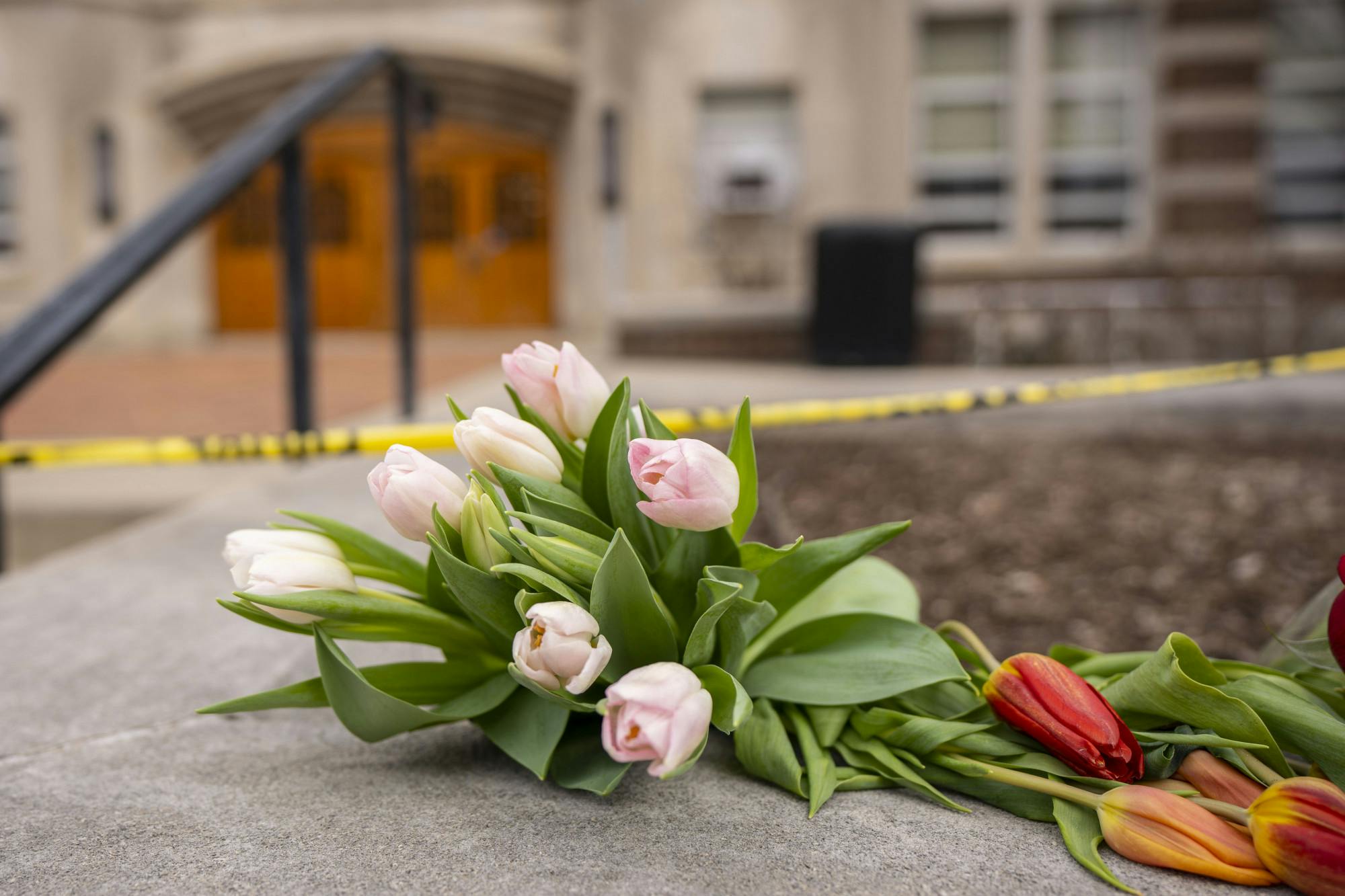“I am the proud resident assistant to 87 students. After the events on Monday night, I am an RA to 86.”
This is how environmental studies and sustainability in parks senior Elizabeth Esch began an Instagram caption she wrote on Friday, Feb. 17, five days after the mass shooting on Michigan State University's campus.
In the post, Esch talked about her experience as a RA who lives on a floor where one of the victims of the shooting resided.
“I made that post just because it was a more coherent way of putting down my thoughts and feelings into words,” Esch said.
Esch said she is now calling for change, not sympathy.
"The right to bear arms is not more important than my resident's right to feel safe in their home at MSU," Esch wrote in the post.
Change needs to happen because the shooting shouldn't have happened, Esch said.
“These kids should not have to be resilient. They should not have to be strong. They should have policies in place to protect them,” Esch said.
On the night of the shooting, social relations and policy senior Noah Doederlein was in his dorm in Case Hall when he received the email alerting students of an active shooter situation on campus. It took a moment for him to recognize the severity of the situation at hand.
Although Doederlein was in his dorm when the shelter-in-place began, he was technically at work. As a RA at MSU, Doederlein is expected to “serve on call in an emergency response capacity.”
Doederlein said the dorm’s group chat began flooding with messages — some containing questions he was not sure of the answers to.
“A lot of questions would pop up like, 'Should we go to the bathroom? Should we turn off our lights?'” Doederlein said.
Many of Doederlein's residents were away from the dorm in other parts of campus, asking if they should return to the building. Others were sheltering in place in the dorm and were asking him what to do next.
“But unfortunately, I only had the same information that they had,” Doederlein said.
Residential Assistants are described as “live-in student team members” on the MSU liveon website. The description for RA’s also cites the students as “serving in an ‘on-call’ in an emergency response capacity.’
Doederlein said his training to become a residential assistant never included discussions of what it means to be on call in an emergency situation like an active shooting.
Conversations and considerations of these situations need to happen, he said.
“Being honest with residential assistants about the ways that residents will come to you for advice or for questions, especially in times of crisis ... that that needs to be clear to RA'S who are both being trained and also who are just considering a job,” Doederlein said. “Because none of that is clear in our contract or anything. Our contract is pretty vague on most things, including crisis response.”
Doederlein assumes there will be conversations surrounding future protocol in crisis situations in future RA training.
“There aren't discussions happening around it actively in our training and I would assume that would change going forward,” Doederlein said.
Support student media!
Please consider donating to The State News and help fund the future of journalism.
Social relations and policy senior Alexia Rizor was the RA on duty at Holden Hall. She was doing her nightly rounds when she got the email alerting her of the active shooter on campus.
Rizor said the Michigan State University Police Department told RAs to end their rounds and shelter-in-place.
She was sharing her phone, which was receiving “constant calls” from residents, with the other RA on duty. They were instructed by the MSUPD to put the phone on silent, but they were still attempting to balance answering the calls.
“It was kind of this weird back and forth of, how am I supposed to shelter in place, barricade my door, be quiet, turn off the ringer on this phone?" Rizor said. "How am I supposed to balance that with answering these calls and helping people who are obviously in distress, but also balancing our safety?”
Rizor said RAs have established protocol for active shooter situations — but it doesn’t extend much beyond “run, hide, fight."
“It's just a simple: step one, call your supervisor, step two, run, hide, fight,” Rizor said.
Esch said she hopes MSU does not have to implement additional protocol for RAs in the event of an active shooter. She says that this would be “treating a symptom and not a problem.”
“The problem is gun violence. It is not having those policies in place to protect us in the first place," Esch said. "To have to install an active shooter training on campus would be treating one of those symptoms and not treating that problem.”
Discussion
Share and discuss “After shooting, dorm RAs grapple with loss, uncertainty in their position” on social media.







